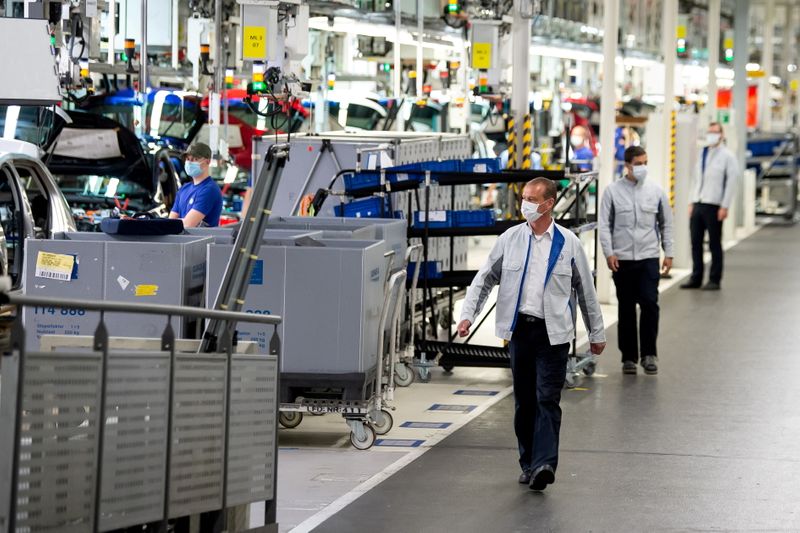LONDON (Reuters) - Euro zone manufacturing growth remained strong in September but activity took a big hit from supply chain bottlenecks that are likely to persist and keep inflationary pressures high, a survey showed on Friday.
Factories have struggled with logistical issues, product shortages and a labour crunch brought about in large part by ongoing disruptions caused by the coronavirus pandemic which forced governments to impose strict restrictions on mobility.
IHS Markit's final manufacturing Purchasing Managers' Index (PMI) sank to 58.6 in September from August's 61.4, and just below an initial 58.7 "flash" estimate.
An index measuring output, which feeds into a composite PMI due on Tuesday and is seen as a good guide to economic health, dropped from August's 59.0 to 55.6. Anything above 50 indicates growth.
"While euro zone manufacturing expanded at a robust pace in September, growth has weakened markedly as producers report a growing toll from supply chain headwinds," said Chris Williamson, chief business economist at IHS Markit.
"Supply issues continue to wreak havoc across large swathes of European manufacturing, with delays and shortages being reported at rates not witnessed in almost a quarter of a century and showing no signs of any imminent improvement."
Those bottlenecks kept pressure on the costs of the raw materials factories need. The input prices index only nudged down from August's 87.0 to 86.9.
However, factories passed some of those increases to customers and the output prices index approached the record high seen in the summer.

Inflation in the euro zone likely rose to 3.3% last month, preliminary official data is expected to show later on Friday, well above the European Central Bank's 2.0% target.
Despite rising inflation the ECB will trim emergency bond purchases over this quarter, it said last month, taking a first small step towards unwinding the emergency aid that has propped up the bloc's economy during the coronavirus pandemic.
